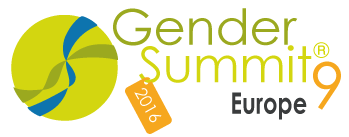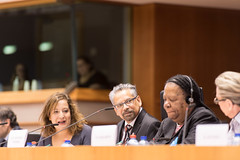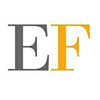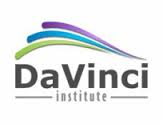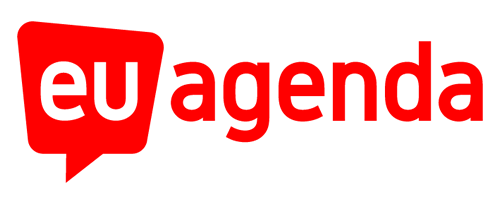Gender-based research, innovation and development for sustainable economies and societal wellbeing. Brussels, 8-9 Nov 2016
![]() Read the GS9Eu report to the European Parliament and European Commission
Read the GS9Eu report to the European Parliament and European Commission
Download the GS9Eu Event Information
Browse and download photos from GS9Eu via our Flickr account
Overview
The Gender Summit is a platform for evidence-based and consensus-focused dialogue between scientists, policy makers, gender scholars, and key stakeholder groups in science endeavours. The Gender Summit Europe 9 2016 coincided with important policy developments in Europe and globally that look towards science knowledge and technological innovation to create a better future for all. Significant here are: the new EU Gender Action Plan and Horizon 2020; the UN Sustainable Development Goals; the African Union’s Africa 2063 and Continental Education Strategy Africa agenda; and the OECD vision for Inclusive Innovation and Creating Our Common Future through Science and Technology. Therefore this year’s Gender Summit opens up dialogue on how an understanding of sex/gender issues in research and innovation can also ensure sustainable and effective development. Please see our excellent programme featuring over 65 international speakers. You can now download the presentations and posters via the GS9 Programme page.
Welcome messages
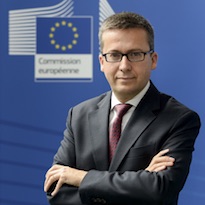
"I welcome the Summit’s objective to discuss how gender continues to be addressed in Horizon 2020, as well as how to further gender mainstreaming in my 3 priority areas of open innovation, open science and open to the world. The future of Europe’s knowledge economy will be entirely dependent on women reaching their full potential in STEM careers. My services have therefore created an Action Plan on Gender Equality in research and innovation, for implementation of the Council Conclusions of 1 December 2015, which addressed gender imbalances in research institutions and decision making.” Commissioner Moedas, Research, Science and Innovation, European Commission
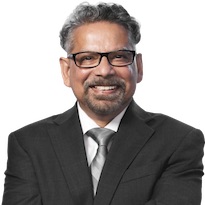
"On behalf of Canada’s Natural Sciences and Engineering Research Council (NSERC) I would like to wish all participants in the 9th International Gender Summit a warm welcome. As a life-long researcher and now President of NSERC, I am keenly aware of both the need and the benefits of increased sex and gender equity in science, technology, engineering and math (STEM). Gender Summits have played a significant role in raising awareness of sex and gender inequity, and sharing best practices for its reduction in STEM. I am positive that Gender Summit 9 will continue this excellent work. Looking ahead, NSERC is very excited to be partnering with the Fonds de recherche du Québec - Nature et technologies (FRQNT), to host the 11th International Gender Summit in Montreal. With the Montreal Summit, we will be working to take discussion beyond sex- and gender-based differences to focus on equity and diversity in the broadest sense. In particular, we seek to discuss the broader issues of the effects of culture, religion, ethnicity and gender on participation in the research and innovation workforce. We include specifically intersectionality as an issue of relevance in all its aspects: indigenous people, disability, sexuality, age, culture, social status etc. Diversity is also linked to interdisciplinarity in research. The Montreal Summit will expand dialogue on STEM to include the social sciences and health research and will address key themes such as global safety, food security, health, big data, and clean technologies, as well as the culture of science promotion. Enjoy the 9th International Gender Summit and we look forward to seeing you in Montreal in November 2017." President, Natural Sciences and Engineering Research Council (NSERC), Canada.
"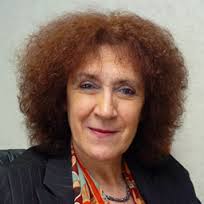 As a Gender Summit supporter and as a representative of the Mexican National Council for Science and Technology (CONACYT) I would like to share with you the wonderful experience we had hosting this important event in Mexico City, where we welcomed people from 24 different nations. The GS8 was the first, of hopefully many more editions, adding the Latin American voice and particularly a Mexican perspective to the Gender Summit movement. Within our theme, 'Science without borders: Improving impact by interlinking gender, geographic, disciplinary and educational dimensions', we addressed issues that affect everyone everywhere, but in many different ways. We must work together to find creative and innovative solutions to our common problems. The Gender Summits gather us to share knowledge and best practices with a gender perspective. 'Conocimiento que transforma' is our motto in CONACYT, and it means that knowledge is powerful tool for transformation. Through science, we can transform our reality and our environment in a way that benefits us all. We are living difficult times that demand more from us. An inclusive science must and can be the answer to many of the challenges that our generation is facing, and will be the only answer to the challenges that will face future generations building a sustainable world. We send you many regards from this part of the world and wish you the best in GS9Eu!" Prof Julia Taguena, Deputy Director, National Council of Science and Technology (CONACYT), Mexico.
As a Gender Summit supporter and as a representative of the Mexican National Council for Science and Technology (CONACYT) I would like to share with you the wonderful experience we had hosting this important event in Mexico City, where we welcomed people from 24 different nations. The GS8 was the first, of hopefully many more editions, adding the Latin American voice and particularly a Mexican perspective to the Gender Summit movement. Within our theme, 'Science without borders: Improving impact by interlinking gender, geographic, disciplinary and educational dimensions', we addressed issues that affect everyone everywhere, but in many different ways. We must work together to find creative and innovative solutions to our common problems. The Gender Summits gather us to share knowledge and best practices with a gender perspective. 'Conocimiento que transforma' is our motto in CONACYT, and it means that knowledge is powerful tool for transformation. Through science, we can transform our reality and our environment in a way that benefits us all. We are living difficult times that demand more from us. An inclusive science must and can be the answer to many of the challenges that our generation is facing, and will be the only answer to the challenges that will face future generations building a sustainable world. We send you many regards from this part of the world and wish you the best in GS9Eu!" Prof Julia Taguena, Deputy Director, National Council of Science and Technology (CONACYT), Mexico.
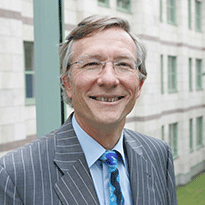 "Women’s share of PhDs, researchers, full professors and university rectors is in Europe very roughly 50%, 30%, 20% and 10% respectively. With our present level of knowledge it is very difficult, if not impossible to believe that this descending series of figures has a rational justification, that they reflect women´s increasing lack of merit, skills, competence or performance when the upper echelons of academia and research are approached. So they must be due to gender bias, be it conscious are unconscious. A 5% handicap in each submission of a research project leads to an 80% cumulated handicap after 30 submissions, a figure typical of a researcher’s life. This assumption, which is supported by some data, could easily explain the above series of percentages. But if we want to efficiently fight the bias we have to understand where it comes from." Rolf Tarrach, President, European Universities Association (EUA). . Read Rolf's full essay.
"Women’s share of PhDs, researchers, full professors and university rectors is in Europe very roughly 50%, 30%, 20% and 10% respectively. With our present level of knowledge it is very difficult, if not impossible to believe that this descending series of figures has a rational justification, that they reflect women´s increasing lack of merit, skills, competence or performance when the upper echelons of academia and research are approached. So they must be due to gender bias, be it conscious are unconscious. A 5% handicap in each submission of a research project leads to an 80% cumulated handicap after 30 submissions, a figure typical of a researcher’s life. This assumption, which is supported by some data, could easily explain the above series of percentages. But if we want to efficiently fight the bias we have to understand where it comes from." Rolf Tarrach, President, European Universities Association (EUA). . Read Rolf's full essay.
Themes
- New research on when, why and how sex-gender issues impact on quality of research, innovation, and development outputs and outcomes
- How gender continues to be addressed in Horizon 2020
- How to mainstream gender into the EU new vision for ERA of Open Innovation, Open Science, Open to the World
- How the global policy agendas to make the world a better place for all can benefit from incorporating scientific understanding of sex-gender issues
- New efforts to develop reliable, and region and sector sensitive, performance metrics and gender equality indicators and statistics, and to integrate them into research, innovation, and development policy actions
- The contributions made by the Gender Summit platform, and its global community of experts and practitioners, to advance gender-sensitive and responsive research, innovation, and development.
Format
The Gender Summits create synergies between actors, agendas, and actions. As in the past events, GS9 will engage scientists, policy makers, gender scholars, and diverse stakeholder groups in examining new research evidence and establishing consensus where improvements are needed and what actions can achieve them.
GS9 programme will combine plenary and breakout sessions, knowledge-exchange sessions, networking breaks, poster exhibition, sponsors’ exhibition stands, as well as linking participants through social networks. Expected participation is 250 attendees from over 40 countries representing academia, policy, media, industry and organisations working in areas related to science.
Partners
Our multi-stakeholder engagement begins with the diverse partnership of convenors and sponsors who collaborate to present the Summits. Read about the GS9 Europe partners bringing you this year's Summit.
Collaborating projects
 |
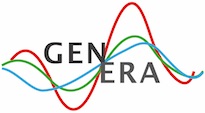 |
|
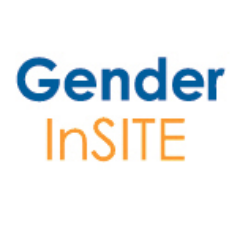 |
Supporting Organisations
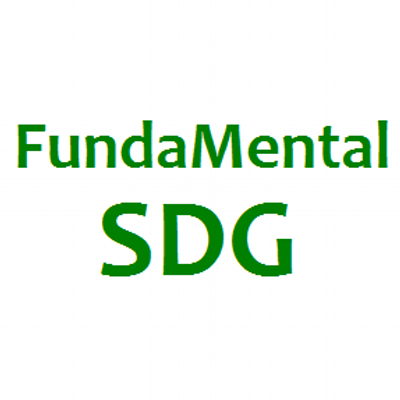 |
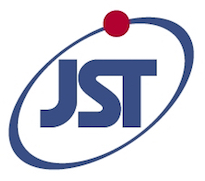 |
||
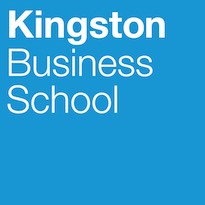 |
 |
 |
|
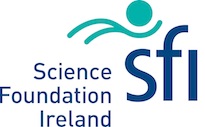 |
|||
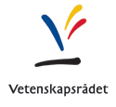 |
